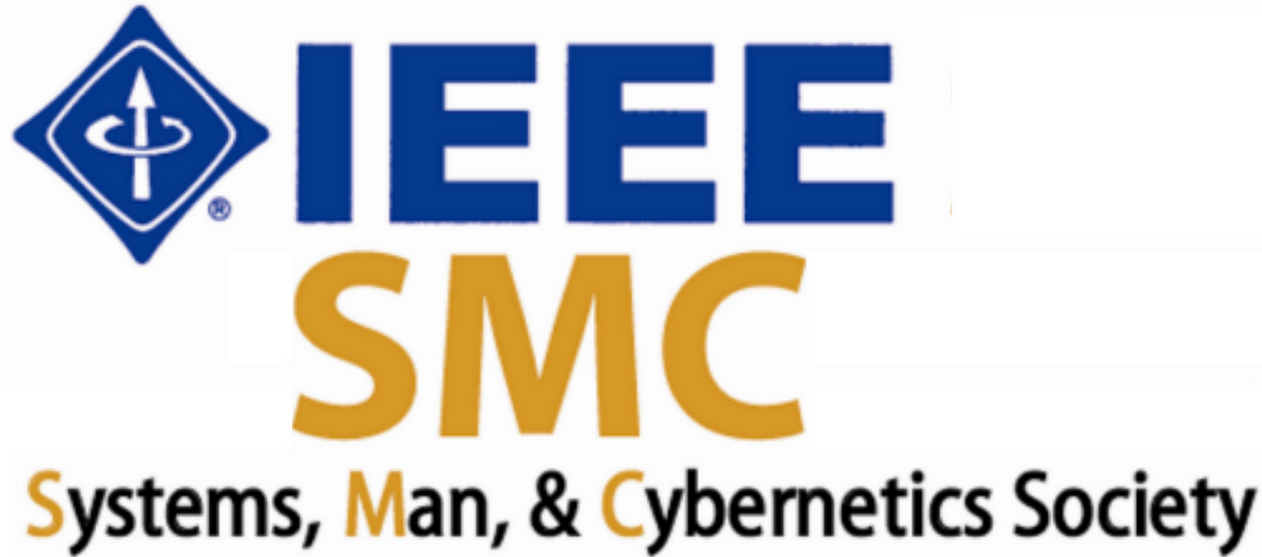April 5-7, 2017 - Barcelona, Spain
Large-scale Machine Learning and Extreme Classification
Prof. Eyke Hüllermeier
Paderborn University, Germany
Machine learning is nowadays applied to massive data sets of considerable size, including potentially unbounded streams of data. Under such conditions, the scalability of learning algorithms is of major concern, calling for an effective data management and the use of appropriate data structures for time- and space-efficient implementations. Starting with a brief introduction to large-scale machine learning and the discussion of some general issues in this field, the talk will focus on the problem of extreme multi-label classification, i.e., multi-label classification with extremely large label spaces. In this context, the choice of appropriate loss functions is specifically important, because loss functions commonly used in standard classification are no longer meaningful. Here, a motivation is given for the so-called F-measure, and a learning algorithm tailored for maximizing performance in terms of this measure is proposed. A key feature of this algorithm is the use of sparse probability estimates of labels given instances, that is, probability estimates restricted to the most probable labels. Thanks to this approach, the algorithm is applicable to problems with extremely many labels.
Bio-Sketch
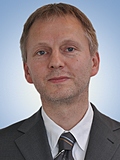 Eyke Hüllermeier is a full professor in the Department of Computer Science at Paderborn University, Germany, where he heads the Intelligent Systems group. He studied mathematics and business computing, received his PhD in computer science from the University of Paderborn in 1997, and a Habilitation degree in 2002. Prior to returning to Paderborn in 2014, he spent two years as a post-doctoral researcher at the IRIT in Toulouse (France) and held professorships at the Universities of Dortmund, Magdeburg and Marburg. His research interests are centered around methods and theoretical foundations of intelligent systems, with a specific focus on machine learning and reasoning under uncertainty. He has published more than 200 articles on these topics in top-tier journals and major international conferences, and several of his contributions have been recognized with scientific awards. Professor Hüllermeier is Co-Editor-in-Chief of Fuzzy Sets and Systems, one of the leading journals in the field of Computational Intelligence, and serves on the editorial board of several other journals, including Machine Learning, Data Mining and Knowledge Discovery, and the International Journal of Approximate Reasoning. He is a coordinator of the EUSFLAT working group on Machine Learning and Data Mining and head of the IEEE CIS Task Force on Machine Learning.
Eyke Hüllermeier is a full professor in the Department of Computer Science at Paderborn University, Germany, where he heads the Intelligent Systems group. He studied mathematics and business computing, received his PhD in computer science from the University of Paderborn in 1997, and a Habilitation degree in 2002. Prior to returning to Paderborn in 2014, he spent two years as a post-doctoral researcher at the IRIT in Toulouse (France) and held professorships at the Universities of Dortmund, Magdeburg and Marburg. His research interests are centered around methods and theoretical foundations of intelligent systems, with a specific focus on machine learning and reasoning under uncertainty. He has published more than 200 articles on these topics in top-tier journals and major international conferences, and several of his contributions have been recognized with scientific awards. Professor Hüllermeier is Co-Editor-in-Chief of Fuzzy Sets and Systems, one of the leading journals in the field of Computational Intelligence, and serves on the editorial board of several other journals, including Machine Learning, Data Mining and Knowledge Discovery, and the International Journal of Approximate Reasoning. He is a coordinator of the EUSFLAT working group on Machine Learning and Data Mining and head of the IEEE CIS Task Force on Machine Learning.
Virtual and remote laboratories in control as a mean to provide experimentation activities in distance and blended learning scenarios
Prof. Sebastián Dormido
National University of Distance Education, Spain
Virtual and remote labs have been around for almost twenty years and while they have been constantly gaining popularity since their appearance, there are still many people in the control education community who either do not know many details about them or do not know them at all. What are their benefits? Which examples of virtual and remote labs for control education can be found in the Internet and how spread and popular are they? What are the current trends and issues in the implementation and deploy- ment of these tools? And the future ones? These and others are some of the questions we answer in this paper, trying to bring the attention of the control education community to these tools which, we believe, are meant to have an increasing importance and relevance for the 21st century students.
Bio-Sketch
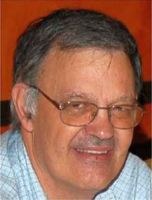 Sebastián Dormido received his BSc and MSc degree in Physics from Universidad Complutense de Madrid in 1968 and 1969 and a PhD in Science from Universidad del Pais Vasco in 1971. Since 1975 he has been Full Professor at Facultad de Ciencias Físicas of Universidad Complutense de Madrid (1975-1982) and Escuela Técnica Superior de Ingeniería Informática at UNED (1982-2016). He has served as Vicerrector of Research (1983-1985) in UNED. He is now emeritus profesor at UNED. His research interest is: Computer Control, Event Based Control, Modelling-Simulation and Control Education with emphasis on Remote and Virtual labs. He has authored or co-authored over 300 technical papers in international journals and conferences and has supervised 40 Ph.D. students. From 2001-2006 has been President of the Spanish Association of Automatic Control (CEA). In 2007 received a Doctor Honorary Degree from Universidad de Huelva, in 2008 the National Automatic Control prize from Spanish Automatic Control Committee and in 2013 received a Doctor Honorary Degree from Universidad de Almería. Since 2014 is the Chair of the IFAC Technical Committee on Control Education (TC9.4) and from 2015 Chair of the IEEE CSS Technical Committee on Control Education.
Sebastián Dormido received his BSc and MSc degree in Physics from Universidad Complutense de Madrid in 1968 and 1969 and a PhD in Science from Universidad del Pais Vasco in 1971. Since 1975 he has been Full Professor at Facultad de Ciencias Físicas of Universidad Complutense de Madrid (1975-1982) and Escuela Técnica Superior de Ingeniería Informática at UNED (1982-2016). He has served as Vicerrector of Research (1983-1985) in UNED. He is now emeritus profesor at UNED. His research interest is: Computer Control, Event Based Control, Modelling-Simulation and Control Education with emphasis on Remote and Virtual labs. He has authored or co-authored over 300 technical papers in international journals and conferences and has supervised 40 Ph.D. students. From 2001-2006 has been President of the Spanish Association of Automatic Control (CEA). In 2007 received a Doctor Honorary Degree from Universidad de Huelva, in 2008 the National Automatic Control prize from Spanish Automatic Control Committee and in 2013 received a Doctor Honorary Degree from Universidad de Almería. Since 2014 is the Chair of the IFAC Technical Committee on Control Education (TC9.4) and from 2015 Chair of the IEEE CSS Technical Committee on Control Education.
Wait-and-Judge in Scenario Optimization
Prof. Marco C. Campi
University of Brescia, Italy
Knowledge is grounded in experience, and the scenario approach studies how experience can be used to optimize our decisions in relation to prescribed goals. A fundamental element in decision-making is the presence of uncertainty so that in a real world the same decision never generates exactly the same outcome. In this talk we discuss the link between complexity of the decision and its robustness against uncertainty and show that tight evaluations on the robustness can be made with virtually no knowledge on the underlying mechanisms by which uncertainty is generated.
Bio-Sketch
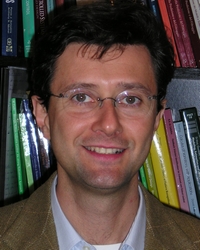 Marco Claudio Campi is professor of Automatic Control at the University of Brescia, Italy. He is the chair of the Technical Committee IFAC on Modeling, Identification and Signal Processing (MISP) and has been in various capacities on the Editorial Board of Automatica, Systems and Control Letters and the European Journal of Control. Marco Campi is a recipient of the "Giorgio Quazza" prize, and, in 2008, he received the IEEE CSS George S. Axelby outstanding paper award for the article "The Scenario Approach to Robust Control Design". He has delivered plenary and semi-plenary addresses at major conferences including SYSID, MTNS, and CDC. Currently he is a dinsinguished lecturer of the Control Systems Society. Marco Campi is a Fellow of IEEE, a member of IFAC, and a member of SIDRA.
Marco Claudio Campi is professor of Automatic Control at the University of Brescia, Italy. He is the chair of the Technical Committee IFAC on Modeling, Identification and Signal Processing (MISP) and has been in various capacities on the Editorial Board of Automatica, Systems and Control Letters and the European Journal of Control. Marco Campi is a recipient of the "Giorgio Quazza" prize, and, in 2008, he received the IEEE CSS George S. Axelby outstanding paper award for the article "The Scenario Approach to Robust Control Design". He has delivered plenary and semi-plenary addresses at major conferences including SYSID, MTNS, and CDC. Currently he is a dinsinguished lecturer of the Control Systems Society. Marco Campi is a Fellow of IEEE, a member of IFAC, and a member of SIDRA.Scheduling with Non-Availability Constraints: Offline and Semi-Online Scenarios
Prof. Imed Kacem
University of Lorraine, France
This talk will summarize the main characteristics of the scheduling problems and introduce the non-availability constraints’ context. More precisely, we will focus on the description of two scenarios: the offline and the semi-online contexts.
The first part of this talk will be devoted to the presentation of the considered optimization problems and their applications. In the second part, we will show that the performance evaluation of some heuristics can be analytically done in the context of the polynomial approximation theory. The differential and absolute approximation measures will be described. As an illustration, we will show analytically some guaranteed performance ratios of approximation algorithms and schemes for solving scheduling problems under non-availability constraints. The studied criterion is the maximum lateness in offline and semi-online contexts.
Bio-Sketch

Imed Kacem is Full Professor since 2009 at the University of Lorraine, France, in Computer Science. He is the Founder and the Head of LCOMS Laboratory of the University of Lorraine since 2013 (LCOMS is the Laboratory of Design, Optimization and Modelling of Systems) after being the Head of the Computer Science Department. His scientific activity is in the Operational Research. More precisely, his contributions are related to the design of exact and approximate algorithms with a guaranteed performance for the NP-hard combinatorial problems. Such problems are mainly related to the scheduling theory. The applications are interdisciplinary and various (production, packing in electronic design, healthcare, transportation, information visualization…). His contributions have been published in referred journals (Theoretical Computer Science, Discrete Applied Mathematics, Discrete Optimization, Journal of Combinatorial Optimization, Journal of Scheduling, JIMO, IJPE, JIM, EJOR, IJOR, 4OR, CAIE, IJCIM, IEEE/SMC Transactions, CAOR, IJPR,...). These research activities have involved the supervision of 10 PhD theses as well as several selective projects (some of them have been funded by the ANR, the European Commission, the CNRS, …). He serves as area editor or guest editor for several journals (Computers & Industrial Engineering-Elsevier, European Journal of Industrial Engineering, RAIRO-Operations Research, AutoSoft Journal-Taylor & Francis, Journal of Systems Science and Systems Engineering-Springer,…) and as Keynote Speaker for several conferences (IEEE/CIE40, Japon (2010); FUBUTEC2011, United Kingdom (2011); IEEE/CoDIT2013, Tunisia (2013); IEEE/ICSCS2013, France (2013); META2016, Morocco (2016); CIE46, China (2016)). He chaired or co-chaired the program committee or the organizing committee of several international conferences (IEEE/ICSSSM06 (Troyes, 2006); IEEE/CIE’39 (Troyes, 2009); CIE’41 (California, 2011); IEEE/CoDIT’14 (Metz, 2014); CIE’45 (Metz, 2015); IEEE/CoDIT’16 (Malta, 2016)). He obtained the « Great Award of Research 2010 » from the Universities of Lorraine, the 3rd Robert Faure Award 2009 from the French Society of Operational Research and Aid Decision (ROADEF), the 2015 Steffan Schwarz Award (Best Paper Award of the European Conference ECEC’2015 in Portugal), and he has regularly the PEDR or the PES Premium (with the highest level A) since 2006.
Nonlinear System Identification Techniques: Some Applications in Telecommunication Transmitter Systems
Prof. Telmo Cunha
University of Aveiro, Portugal
Wireless transmitters are responsible for sending information signals to receivers in telecommunication systems, such as in cellular networks. These devices operate under very restrictive conditions as no power can be transmitted outside the transmitter’s given channel bandwidth, and the in-channel signal must be sent with a high quality level. Therefore, the distortion generated by the signal amplifying stages of the transmitter must be very low, which is not easily accomplishable especially if transmitter energy efficiency is also to be taken into concern. Modeling the complex behavior of wireless transmitters is, therefore, very important to identify their sources of distortion, for their reduction in new hardware designs and also for the implementation of distortion compensation schemes (linearizers) that try to mitigate the output distortion level of transmitters. This talk focuses on presenting the application of nonlinear system identification techniques as the support of transmitter modeling and compensation strategies, as considered in modern telecommunication systems and which are essential for their proper operation.
Bio-Sketch
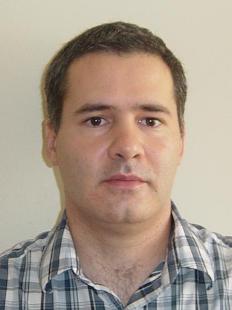
Telmo R. Cunha received the Diploma and Ph.D. degrees in electronics and computer engineering from the Universidade do Porto, Portugal, in 1996 and 2003, respectively. Before 2004, he was involved with the Astronomical Observatory, University of Porto, and, afterward, he was a Technical Director and Research Engineer with Geonav Lda., a private company near Porto. Since 2004, he is an Assistant Professor with the Department of Electronics, Telecommunications and Informatics, University of Aveiro, Aveiro, Portugal, and also a Research Engineer with the Institute of Telecommunications, University of Aveiro. He has been lecturing in the areas of control theory and electronics, and he has been involved in several national and international research projects. His current research interests include behavioral modeling and linearization applied to radio frequency and microwave devices and also integrated-circuit signal integrity analysis. Dr. Cunha has been serving as a reviewer for several IEEE journals.
Information Systems in manufactering systems
Prof. Valérie Botta-Genoulaz
Université de Lyon, INSA-Lyon, France
Nowadays information systems are based more and more on off-the-shelf products like Enterprise Resource Planning (ERP) systems. An ERP system is an integrated software package composed by a set of standard functional modules (Production, Sales, Human Resources, Finance, etc.), developed or integrated by the vendor, which can be adapted to the specific needs of each customer. Despite the significant number of research done these last 2 decades, their implementation, their usage, their optimization, and their update is still a challenge for both large companies and small and medium sized businesses, in order to maintain its alignment with the business processes and the strategy of the company.This alignment problem also exists in the case of shifting from full ERP based information systems to alternative solutions such as open source, best of bread or software as a service approaches. In this talk, we will provide an update on the researches on information systems alignment for manufacturing companies, and discuss some new research issues.
Bio-Sketch
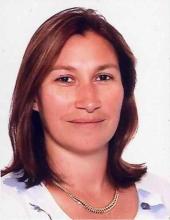 Valérie Botta-Genoulaz is a full Professor in the Industrial Engineering Department at INSA-Lyon, Université de Lyon, France, and the head of DISP Laboratory (Decision and Information Systems for Production systems). She holds a master degree in Production Management in 1988 and works for 6 years in a textile international company as computer-integrated manufacturing project leader. She obtained a PhD in Production Management from Université Claude Bernard Lyon 1 (France) in 1996, and was certified application consultant “Production Planning” for SAP ERP in 2000. Recruited at INSA-Lyon as assistant professor in 1997, she received her “Habilitation à diriger les recherches” in 2005 and became full professor in 2006. Her research interests deal with operation planning, supply chain management, as well as alignment of information system (information sharing, ERP systems), and their impacts on enterprise performance. She is involved in many research networks, international conference program committees and international journal editorial board (Enterprise Information Systems, Supply Chain Forum,…), and co-chairs the steering committee of the International Conference on Information Systems, Logistics and Supply chains, she co-launched in 2006. She is member of SAP University Alliance Program, Supply Chain Council and Vice-President of the “Logistique Rhône‐Alpes” economic Cluster (France). She published more than 100 papers in international journals and conferences or book chapters and co-chaired several books or journal special issues.
Valérie Botta-Genoulaz is a full Professor in the Industrial Engineering Department at INSA-Lyon, Université de Lyon, France, and the head of DISP Laboratory (Decision and Information Systems for Production systems). She holds a master degree in Production Management in 1988 and works for 6 years in a textile international company as computer-integrated manufacturing project leader. She obtained a PhD in Production Management from Université Claude Bernard Lyon 1 (France) in 1996, and was certified application consultant “Production Planning” for SAP ERP in 2000. Recruited at INSA-Lyon as assistant professor in 1997, she received her “Habilitation à diriger les recherches” in 2005 and became full professor in 2006. Her research interests deal with operation planning, supply chain management, as well as alignment of information system (information sharing, ERP systems), and their impacts on enterprise performance. She is involved in many research networks, international conference program committees and international journal editorial board (Enterprise Information Systems, Supply Chain Forum,…), and co-chairs the steering committee of the International Conference on Information Systems, Logistics and Supply chains, she co-launched in 2006. She is member of SAP University Alliance Program, Supply Chain Council and Vice-President of the “Logistique Rhône‐Alpes” economic Cluster (France). She published more than 100 papers in international journals and conferences or book chapters and co-chaired several books or journal special issues.







